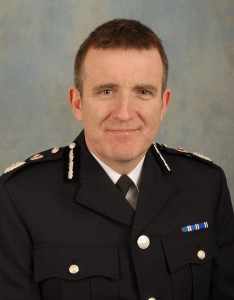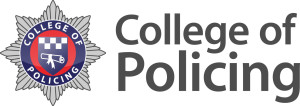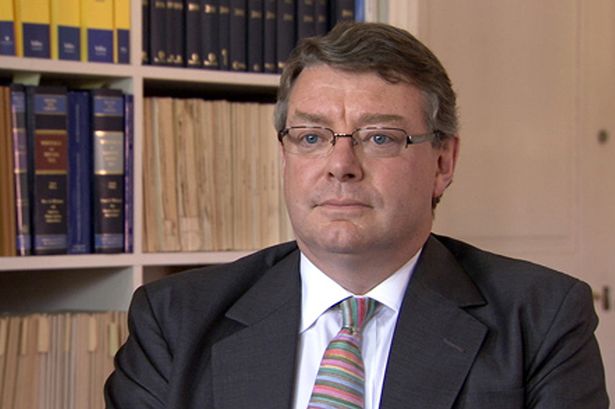Spycops Investigator was Spycops Overseer

Chief Constable Mick Creedon
As the full scale public inquiry into Britain’s political police continues to limber up, it’s worth noting that they’re reliant on the same police that committed the abuses.
New evidence this week shows that’s not institutional, but that a individual senior officer responsible for spycops is posing in a key role as a neutral trustworthy figures.
OPERATION HERNE
The first serious attempt at inquiring into the spycops scandal was a Home Affairs Select Committee hearing in February 2013.
It took testimony from three women who had relationships with undercover officers, Helen Steel (anonymised as ‘Clare’), Lisa Jones and Alison.
It also heard from Assistant Chief Constable Pat Gallan of the Metropolitan Police, then-head of the police’s self-investigation into the issue, known as Operation Herne.
The three women who had relationships had done successful investigations to prove that their former partners were Metropolitan police officers. In contrast Pat Gallan, with a staff of several dozen, said she had uncovered very little indeed.
The hearings were the day after the Guardian revealed that Mark Kennedy’s predecessor officer had stolen the identity of a dead child called Rod Richardson. The report estimated it had happened in around eighty other cases.
Gallan, who admitted being aware a case of theft of dead children’s identities five months earlier, had somehow found no further instances and cast doubt on the Guardian’s guess.
She says she does not know if the figure of 80 children’s identities being used is accurate. She knows of two cases.
Gallan’s numeracy is clearly as strong as her detective ability. Even by that time, there had been published stories about three officers who used dead children’s identities – Rod Richardson, John Barker (aka officer John Dines) and Peter Black (aka Peter Daley, aka officer Peter Francis).
Gallan flatly refused to apologise for the practice of stealing dead children’s identities, or for anything else. It was a PR disaster and she was removed from her post at Operation Herne by the end of the week.
With a new layer of scandal to fend off, they needed to front it someone ‘independent’.
DECAPITATE THE HYDRA
They brought in Derbyshire’s top cop, Chief Constable Mick Creedon.
The Home Secretary, Theresa May, has said revelations that police used the identities of dead children will be investigated by an independent police chief with an expertise in corruption.
Well that is certainly true, though perhaps not in the way Theresa May meant. Yet again we see the exceptionalism afforded to police. No other industry would regard a sister company whose top brass frequently transfer between one another as independent and free from bias.
It continues to this day – the police are still holding the spycops files that will be wanted by the Pitchford public inquiry. Even though a whistleblower officer has reported ‘domestic extremist’ files being destroyed by fellow officers, even though the Met corruptly destroyed a ‘lorry-load’ of documents relating to its own corruption including the Stephen Lawrence case, the public inquiry has not requisitioned the relevant documents.
What other organisation found to have committed systematic abuse of citizens would be treated this way? Which other criminals get to be custodians of the evidence that incriminates them?
The Home Affairs Select Committee issued an interim report (it never did a full one). They emphatically insisted that all families whose dead children’s identities were stolen by spycops be informed. They expected it to happen by the end of 2013. We are still waiting.
At that time Creedon, keen to calm the furore and retain credibility, rapidly produced an Operation Herne report rubbishing the idea of there only being two isolated instances of dead children’s identity theft. He said that for around 20 years – mid 1970s to mid 1990s – it was standard practice in the Special Demonstration Squad.
At this stage one hundred and six (106) covert identities have been identified as having been used by the SDS between 1968 and 2008.
Forty-two (42) of these identities are either confirmed or highly likely to have used the details of a deceased child. Forty-five (45) of these identities have been established as fictitious.
Work continues to identify the provenance of the remaining identities.
There are definitely more, though. For one, the officer known as Rod Richardson wasn’t in the SDS, he was from the National Public Order Intelligence Unit. Who knows how many of their officers did it?
Creedon explicitly rebuffed calls for an independent inquiry into spycops.
‘There has always been public concern about police investigating the police, but I’ll be brutally honest: there is no one as good at doing it as the police. We don’t seek to hide things. We do actually seek to get the truth and we do it properly and I frankly find it almost insulting that people suggest that in some way, because I’m a police officer, I’m not going to search the truth.’
THE NEW BOSS, SAME AS THE OLD BOSS
The proof that Operation Herne was just a figleafing exercise came in March 2014. After whistleblower SDS officer Peter Francis revealed his unit had spied on the family of Stephen Lawrence, Mark Ellison produced his comprehensive and damning report into the matter. His findings eventually forced the resignation of the head of Counter Terrorism Command, Richard Walton, a classic case of ‘go before they bring misconduct charges and thereby preserve your pension’.
On the very same day as Ellison’s report was published, Creedon issued his Operation Trinity report. It looked at the same issue and reached essentially opposite conclusions. He basically said that if there isn’t documentary proof of spying on the Lawrences we can’t say it happened.
So immersed was Creedon in protecting the police from exposure that the 84 page report subtitled Allegations Of Peter Francis said it
will neither confirm or deny if Peter Francis was an undercover police officer.
Four months later came a third and seemingly final Herne report, into the spying on similar racial and family justice campaigns. Two years on, the 18 families identified are still waiting for answers. Creedon and Herne are publicly silent on that and all other matters.
BY HIS OWN HAND
But this week there’s a new twist in the tale. When spycops were active, they had to be authorised by a senior officer from the constabulary they were in, as well as their bosses at the Met. More than one of the exposed undercover officers was in Derbyshire; Mark Kennedy was there many times. We know from leaked papers of Kennedy’s deployments in North Yorkshire and Nottinghamshire that the proper protocol of these authorisations was meticulously adhered to.
As Derbyshire’s Assistant Chief Constable (Operations), Mick Creedon will have been briefed on these deployments and he will have personally authorised them to go ahead. It’s quite possible that Operation Herne has custody of documents authorising Kennedy’s abuses and bearing Creedon’s signature, unless they too have been deliberately lost or destroyed.
The Undercover Research Group have just published a profile of Mick Creedon that maps his career and shows a particular involvement in protests by environmentalists, anti-fascists and other groups who were infiltrated by spycops.
Far from being a clean, neutral figure, Creedon came to Operation Herne as an insider of many years’ standing. Once again, having been proven to have abused citizens the police are shown to respond with deceit.
These attempts at self-preservation backfire by undermining any idea that the police could have a serious commitment to honesty and integrity, let alone justice. Top to bottom and side to side, we’ve seen brand protection as their highest priority – indeed, that is the very thing that led to them undermining the justice campaigns in the first place.
There can be no faith in Operation Herne, nor any police self-investigation. There can be no trust in the people whose wrongdoing is the subject of the public inquiry being allowed to decide what does and doesn’t get revealed. The problems highlighted by the spycops scandal are endemic and institutional. The revelation of Mick Creedon’s true history proves that there is no independence in the police.


